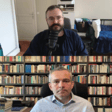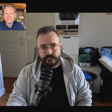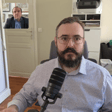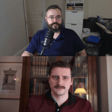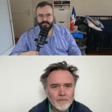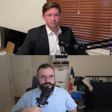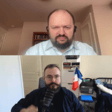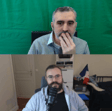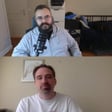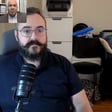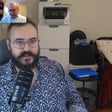Become a Creator today!Start creating today - Share your story with the world!
Start for free
00:00:00
00:00:01

Ep. 2 - Charles Fain Lehman - Make America Safe Again
Pascal-Emmanuel Gobry, Publisher of Sphere Media, interviews Charles Fain Lehman, Fellow at the Manhattan Institute and one of America’s foremost crime experts, on how to Make America Safe Again.
Subscribe to the PolicySphere Morning Briefing: https://policysphere.com/subscribe
Follow Charles on X: https://x.com/CharlesFLehman
Subscribe to Charles on Substack: https://thecausalfallacy.com/
Subscribe to the Sphere Podcast on Apple Podcasts: https://podcasts.apple.com/us/podcast/sphere-podcast/id1780831168
Subscribe to the Sphere Podcast on Spotify: https://open.spotify.com/show/48eWEcxSYDyrgjC3lO0EJZ
Subscribe to the Sphere Podcast on YouTube: https://www.youtube.com/channel/UCB2gs2TBXeP7vyn9QUaaxjQ
Transcript
Introduction and Guest Overview
00:00:00
Pascal-Emmanuel Gobry
Hello, everyone, and welcome to the Sphere podcast. ah This is the second episode we're recording, so I still don't know what I'm doing, so I apologize in advance for all the numerous technical problems, awkward pauses, and um generally um unpleasantness.
00:00:21
Pascal-Emmanuel Gobry
ah But I have with me a wonderful guest, ah Charles Lemon of the Manhattan Institute, and I keep telling everybody who I know that ah my friend is the best crime expert in America, um which is a way for me to brag, not not not to praise him.
00:00:43
Pascal-Emmanuel Gobry
um And he's added a new um string to his bow ah because he's been writing a lot about vice, which is ah not exactly the same thing as crime, especially since we've decided that we should legalize all of it right now. ah But we'll talk more about that. um So yeah, I mean, Charles produces, to my mind, the best research today on these issues of crime and law and order and vice and and this entire nexus of issues which have become very important in America since, let's say, 2020. Is there anything you want to add to your introduction? I haven't mentioned how
Political Shifts and Young Voters
00:01:27
Pascal-Emmanuel Gobry
handsome you are.
00:01:29
Charles
but No. um ah Yeah, I'm, I'm, I feel like I should add, I'm a fellow at the Manhattan Institute, um where my sort of primary home is our Policing and Public Safety Initiative. But, you know, I work on sort of a variety of things at the intersection of social dysfunction or social disorder.
00:01:48
Charles
So that's crime, but also vice, but also drugs, but also social disorder. um I really like sort of the nitty gritty stuff. ah Let's see, i'm I'm very cheery at parties. so um And I'm also a contributing editor at City Journal, which is our in-house publication.
00:02:02
Charles
And am I?
00:02:03
Pascal-Emmanuel Gobry
Which is very good, which you should subscribe to.
00:02:05
Charles
You should.
00:02:06
Pascal-Emmanuel Gobry
ah And you write a substack, you should plug your substack.
00:02:08
Charles
I do. I wrote a sub-step.
00:02:09
Pascal-Emmanuel Gobry
That's what podcasts are for.
00:02:11
Charles
I wrote a subject, it's called the Causal Fallacy, which is great because nobody can ever spell it. um People think it's called the Casual Fallacy. It's not, it's much dorkier than that. ah It's a reference to a it' something James Q.
00:02:23
Charles
Wilson wrote in the 1970s, but I get, you know, people people seem to like it, so I recommend that as well.
00:02:29
Pascal-Emmanuel Gobry
Yeah, nothing casual about it. Go subscribe.
00:02:31
Charles
No, we're uncalled.
00:02:32
Pascal-Emmanuel Gobry
um All right.
00:02:33
Charles
It's very serious.
00:02:34
Pascal-Emmanuel Gobry
So one of the first topics that I want to write about, which is I think you came up with this phrase and I've been trying to turn it into a meme, which is what I call the deadbeat voter hypothesis.
00:02:47
Pascal-Emmanuel Gobry
So what's the deadbeat voter hypothesis?
00:02:49
Charles
Yeah, did the median voter hypothesis which has been sort of my like way of framing it on Twitter and I've, I've talked about this in city journal a little bit I might have something elsewhere, possibly after the election we'll see what happens with that. um
00:03:01
Pascal-Emmanuel Gobry
Right. i should i should I should mention, by the way, that this is being recorded before the election, so we don't have like exit data to to validate our pure theory at this point, but go ahead.
00:03:08
Charles
right yeah oh
00:03:12
Charles
Here's, you know, here's here's a very specific claim and then also to expand a very specific claim is so ah there's this is weird dynamic in the ending days of the race, where there were two phenomena going on one is that the electorate is much less polarized on race.
00:03:30
Charles
has been historically, Black and Hispanic voters are, although not overwhelmingly for Trump, are shifting towards Trump. And at the same time, the electorate is much more polarized on sex than it has been historically.
00:03:41
Charles
So part of what's shifting there is that young Black and Hispanic men are moving towards Trump.
00:03:44
Pascal-Emmanuel Gobry
Yep.
00:03:45
Charles
um And so as part of a general shift in men. And so because of those two changes, both candidates are scrambling to in the Democratic Party's case, ah sort of shore up their support among young minority men in the Republican Party's case, try to get young men to turn out and vote for them because young men don't
Vice and Political Influence
00:04:06
Charles
turn out.
00:04:06
Charles
really That's sort of an issue.
00:04:07
Pascal-Emmanuel Gobry
Right.
00:04:08
Charles
um And so both campaigns have this theory of this subset, this apparently newly important subset of the electorate, which is that basically they're like a bunch of degenerates.
00:04:20
Charles
um they like They're like pot, they're like porn, they're like gambling, they're like cryptocurrency. ah So, you know, for example, the Harris campaign, I think last week from when we're recording this, put out its opportunity agenda for black men and it's a five plank platform.
00:04:36
Pascal-Emmanuel Gobry
Yes.
00:04:38
Charles
And two of the five planks are we're going to protect your investment in cryptocurrency and we're going to help you get jobs in the newly legal pot market. um You know, obviously you see this, you see this on the other side. Donald Trump has launched his own cryptocurrency.
00:04:50
Charles
Kamala Harris has put ah ads on sports betting websites. There's a bunch of independent stuff. There was just this ad from a pro Harris pack that was basically like Donald Trump and Project 2025 want to take away your porn.
00:05:04
Pascal-Emmanuel Gobry
we're We're sponsored by Red Bull, by the way. this is my These are my two vices.
00:05:07
Charles
when
00:05:09
Pascal-Emmanuel Gobry
They're caffeine and nicotine. They're they're they're all the the drugs I need.
00:05:11
Charles
i said But I think what's what's interesting here, right, is like is there is clearly, I think they are probably descriptively correct that this subset of the population, this growing subset of the population likes Vice, but at the same time it's quite novel that, ah maybe not totally novel, but notable nonetheless that presidential campaigns are basically going, yeah, we love Vice too. See, you vote for us, vote for Vice. Like that was a dramatic cultural change, I don't know, 30, 40 years ago.
00:05:40
Pascal-Emmanuel Gobry
Yeah, so, I mean, it's just, the I mean, so, A, it's sad that this block of people exists and B,
00:05:56
Pascal-Emmanuel Gobry
What's really sad is obviously in democratic politics in general and American politics in particular, the most influential demographics are swing voting groups. And so if the the the key demographic in in and the US s becomes like deadbeats or however we want to call them, um,
00:06:22
Pascal-Emmanuel Gobry
you know that's that's just a very sad development um
00:06:27
Charles
It's also it's also a self reinforcing thing right like the policy changes that are being promised you know the other example I didn't mention is Trump came out in favor of marijuana legalization in Florida is now home state, you know, going against Ron DeSantis the rest the floor
Legalization and Societal Impact
00:06:43
Charles
Republicans. um you know i think i think what's going on there is that it is neither candidate feels any particular moral onus not to endorse these kinds of behaviors, but the policy changes that they are advocating for end up reinforcing and expand reinforcing the behavior and expanding how to engage in the behavior so like
00:06:49
Pascal-Emmanuel Gobry
You know, that's just a very sad development.
00:07:00
Pascal-Emmanuel Gobry
Right.
00:07:03
Charles
you know In the early 90s, there were fewer than a million Americans who smoked marijuana on a regular basis. Today, it's something like 17 million. Actually, there are more Americans who smoke pot daily or near daily than drink alcohol daily or near daily.
00:07:19
Charles
ah hu so like But you know if you if you if you legalize marijuana nationwide, you are expanding the pool of people who will be addicted to marijuana, and thus you're expanding the violence about your population, and the cycle keeps going.
00:07:19
Pascal-Emmanuel Gobry
Oh, wow.
00:07:35
Pascal-Emmanuel Gobry
ah what What happened to the Roman Empire? um ah That's – we're already depressed, I guess. ah So I should sort of put forward the sort of devil's advocate argument, and maybe this will lead us into a broader discussion of vice.
00:07:51
Pascal-Emmanuel Gobry
um which is you know ah there's nothing wrong with ah responsible adults enjoying a little bit of marijuana, deciding that they want to gamble a little, deciding that they want to invest in cryptocurrencies.
00:08:09
Pascal-Emmanuel Gobry
ah And this is a legitimate democratic concern that voters have, ah and you know politicians are responsive to public opinion. That's good.
00:08:24
Pascal-Emmanuel Gobry
ah that's That's not the same thing. And maybe you disagree with that, but is but that's not the same thing as saying, oh, there's this growing group of people in America who are dead beats because they're all smoking po pot all the time and they're all spending all of their family's life savings that they don't have on crypto and blah, blah, blah. And that's like an identifiable group of people and like both.
00:08:53
Pascal-Emmanuel Gobry
parties slash candidates have decided that they need to get that group specifically.
00:08:53
Charles
That.
00:08:57
Charles
Yeah, and also I can make an argument about the morality of consuming vicious substances. But at the end of the day, like I drink alcohol. I have smoked a handful of cigarettes. I've tried marijuana. And clearly, i have no credible I have no credibility in making this argument. It's fine with me. um like like i can you know ah like Almost all of the moral arguments I would make there are instrumental. It's like it's irresponsible. um But I think it's much more important to get back to the point is like And this this gets to the sort of broader theme in my work is that you can reason from the individual and say well either it's good or it's bad for all people, um but that's not actually how.
00:09:38
Charles
but addictive, harmful substances work, right? It's not how alcohol works. Many people can drink alcohol responsibly. And some people are in their lives. It's not how cigarettes work. It's not how marijuana works.
00:09:48
Charles
It turns out it's not actually how heroin works. um The best estimates about 30% of people who initiate heroin use will proceed to addiction. ah So like, you know, you try heroin, you got a seven and 10 chance of not getting hooked.
00:09:59
Charles
um But this, you know,
00:10:00
Pascal-Emmanuel Gobry
Dray Heron, kids, you know, the your odds are good.
00:10:02
Charles
was I would not recommend that because there's a 3 in 10 chance that you get addicted to heroin and that's bad.
00:10:03
Pascal-Emmanuel Gobry
that's the Talk to your dealer first, you know, the there are risks.
00:10:09
Charles
um yeah so So the point is policy has to concern itself with those probabilistic outcomes because they matter at the population level. They matter even if only some small fraction, somewhere between 5% and 15% of gamblers are going to become addicted to gambling. But they're going to do a lot of harm to themselves in the course of doing that. And so what policy needs to be thinking about is
00:10:42
Charles
Either we can let most people engage in something that is not harmful to themselves and they get sort of like a little benefit out of it at the cost of this small subset of users sustaining enormous harm, or we can deal with that enormous harm by prohibiting or strictly regulating the substance at the cost of that very little benefit to lots and lots
Marijuana: Public Perception and Health Risks
00:11:03
Charles
of people. And so you're sort of optimizing on both sides. My argument is that in general, to go back to the normative side of this, we should be willing at the margin to accept more restrictions on vice for the benefit of people who like struggle with vice that I don't really want to live in a society where like 17 million people are smoking dope all day. That's not good in my opinion and I'm willing to forego the opportunity to like smoke a joint now that I'm doing it anyway in order for that to be true.
00:11:33
Pascal-Emmanuel Gobry
So this is, this is a i I was recently at a dinner for ah European business executives where they sort of asked me to talk about American politics and the subject of pot came up.
00:11:46
Pascal-Emmanuel Gobry
ah None of them knew that Trump had also come out in favor of of pot legalization. um And there was a split, what?
00:11:53
Charles
He's always been soft on this, by the way. He's always been soft on this. Back in 2018, he said, yeah, we should defer, give it to the States.
00:11:57
Pascal-Emmanuel Gobry
Yeah. he's a He's a New York liberal. He's a he's a he's a New York Giuliani voter.
00:12:02
Charles
Right.
00:12:04
Charles
Right.
00:12:04
Pascal-Emmanuel Gobry
um ah Anyway, ah but we love him. um And basically there was a split in the table between those executives who had been to the US recently and those who hadn't.
00:12:19
Pascal-Emmanuel Gobry
And those who had been there recently were like, it's it's insane.
00:12:24
Pascal-Emmanuel Gobry
All the streets smell like pot all the time. It's crazy. Like I've totally changed my mind. And the guys who hadn't been to the US s recently who were like, yeah, sure, legalized pot, whatever.
00:12:24
Charles
and
00:12:35
Pascal-Emmanuel Gobry
It's harmless.
00:12:37
Charles
There's this is like, there's this like, right, well, and there's, there's this like, very libertarian tone these arguments take on where it's like, you're not hurting anybody else. So really, what's the big deal?
00:12:48
Charles
What they mean by this is like, smoking marijuana does not cause you to commit acts of violence or property offending. And that's like, mostly true. It's like, by and large, true.
00:12:57
Pascal-Emmanuel Gobry
yeah Yeah, because it destroys your brain.
00:12:58
Charles
But there were all of the ways in which
00:13:00
Pascal-Emmanuel Gobry
You don't have enough brain cells to commit property damage.
00:13:03
Charles
and
00:13:04
Pascal-Emmanuel Gobry
so
00:13:04
Charles
Right. um No, I mean, so and I wrote a piece after Trump came out for for ah legalization in Florida, I wrote a piece in the Boston Journal, you know, trying to make the argument to Donald Trump, basically. And the way that I framed it in this Trumpian terms is like, I didn't use this language, but like marijuana makes large portions of our society just like a little bit uglier and grosser.
00:13:28
Pascal-Emmanuel Gobry
Yeah.
00:13:28
Charles
but like He's a very aesthetically motivated individual, and I think that that is sort of, but I also think the argument is true.
00:13:35
Charles
I think it may connect, but it's also true. It states legalized marijuana see increases in rates of homelessness. They see increases in rates of addiction. ah Property values go down in at least some contexts adjacent to marijuana dispensaries.
00:13:48
Charles
The smell of marijuana becomes prevalent, and you don't have the enforcement infrastructure to do anything about it. Kids are smoking in school. like it's not You know, it's is that the end of the world is like Alex Berenson wrote this book five, six years ago, where he's like, we need to oppose marijuana legalization because it will lead to a rising red tide of violence. He was wrong about that because he's not very good at math, but he's he's it that That isn't the argument against marijuana legalization.
00:14:17
Charles
The argument against marijuana legalization is that like society and individual lives become like slightly worse in lots and lots of ways. um And by the way, a majority of the public now agrees with me on this.
00:14:29
Charles
There's a recent Gallup poll that finds, for the first time, I forget the name of plurality.
00:14:32
Pascal-Emmanuel Gobry
Yeah, that's crazy.
00:14:34
Charles
Yeah, a plurality of Americans say, yeah, um mar marijuana is harmful to individuals and it's harmful to society.
00:14:35
Pascal-Emmanuel Gobry
Yeah, a public opinion is switching.
00:14:41
Charles
um
00:14:41
Pascal-Emmanuel Gobry
Wow.
00:14:42
Charles
Yeah, like like they're starting to realize, and it like it doesn't take a lot. the The thing that convinces people at marijuana organization when I talk to them, they're always like, yeah, I was for it, but it smells really bad. I'm like, I do not see that coming. You can smoke a cigarette in public. You can smoke marijuana. Yeah, obviously.
00:15:02
Pascal-Emmanuel Gobry
there's I mean, there's a total like sort of you know ah kind of bat-like argument that just the fact that it's ugly and smells bad is is reason enough to ban it. like It's like, oh, how does it hurt you? like No, it absolutely hurts me to have to smell bad. the shit when i when I leave the house. like that's that's That's a harm on me and so I'm going to make you stop.
00:15:30
Pascal-Emmanuel Gobry
um
00:15:35
Pascal-Emmanuel Gobry
The other thing I wanted to say, so and I wonder if you have data on it and you said, oh, the cases that makes society worse and all these You know, small ways, but many small ways. um Yes. through The other thing is it pretty clearly knocks several IQ points of of people. ah And, you know, I remember having these conversations in private, but I'm going to have it in public, which is like, you can tell when someone's, somebody's a regular pod user.
00:16:07
Pascal-Emmanuel Gobry
And like they may, you know, they have a job, they have a wife, they have a family. It's not like their, their life just fell apart and they're now on the street, but they're just sort of less with it.
00:16:19
Charles
Yeah.
00:16:20
Pascal-Emmanuel Gobry
um
00:16:21
Charles
Yeah, so so there there are a bunch of different dimensions there. um There's sort of long run versus short run harms or you know acute versus chronic harms. And what I mean by that is like,
00:16:31
Pascal-Emmanuel Gobry
Yeah.
00:16:32
Charles
you know At the very least, marijuana is an intoxicant. If you were drunk all the time, you would be stupider. Similarly, if you're stoned all the time, you will be stupider. um And the question is like, if you stop being stoned all the time, will you get smarter or is there some durable effect? It's a little unclear. um The association of evidence is pretty good that it knocks off IQ points, particularly if you're smoking heavily in adolescence, like when the brain is still forming. you know I say to people like at the end of the day,
00:16:59
Charles
In some instances, my ideal legalization regime, if you could make it happen, is that marijuana is legal only for people over 65. Because they let them have a little pot. They don't mind. It's fine. But the real harm is at the other end of the age distribution. When you talk about under 25, blah, blah, blah, brains still forming. So you see a lot of association, a lot of it is for IQ. There's some good quasi-experimental stuff. This is a study I really like.
00:17:28
Charles
Maastricht in the Netherlands. You can tell me I'm pronouncing it wrong because I'm not a European. um for so So the Dutch...
00:17:35
Pascal-Emmanuel Gobry
Yes, you don't speak European, do you?
00:17:37
Charles
No, I don't. So that so so so you you can get pot in the Netherlands, um but there's a period of time in which they were prohibiting foreign nationals from purchasing marijuana.
00:17:48
Charles
And so you look at the academic performance of foreign students compared to domestic students before and after the prohibition goes into effect. And the foreign students start doing significantly better than the domestic students controlling for all other factors.
00:18:03
Pascal-Emmanuel Gobry
ah
00:18:04
Charles
Which tells you, yes, so there's so there's there's clearly at least some acute effect. And insofar as marijuana is addictive, the acute effect can play out for a really long time. There may be longer term effects.
00:18:15
Charles
There's sort of a big question mark of the direction of causality with longer term effects. And this has to do with the whole panoply of um mental health issues, not just IQ, anxiety, depression, et cetera, which which is the anxiety causing the marijuana use, is the marijuana use causing the anxiety, probably both.
00:18:32
Charles
The one where we have the strongest evidence, I tend to think, is is the association between marijuana use and schizophrenia, um where we are quite certain that using high potency marijuana, and particularly in adolescents, can lead to psychotic breaks.
00:18:40
Pascal-Emmanuel Gobry
Yeah. Yeah.
00:18:45
Charles
Psychotic breaks can lead to can elevate your risk of schizophrenia subsequently. And we now have like You know, I was just in a debate with Jacob Sullam of Reason Magazine where he said, well, the evidence points in different directions.
00:18:56
Charles
And I was like, no, I mean, yes, there's old bad research that points in the other direction.
00:19:00
Pascal-Emmanuel Gobry
What's bad about schizophrenia?
00:19:03
Charles
But there's new better research where you exploit random variation in genes to estimate the effects. And it's very clear that it elevates your risk for schizophrenia causally.
00:19:14
Pascal-Emmanuel Gobry
the the The government has no right to infringe on my right to give myself schizophrenia.
00:19:20
Charles
I think it does. Well, more precisely, I think the government is the right to infringe on the rights of businesses to sell you products that will make you schizophrenic.
00:19:24
Pascal-Emmanuel Gobry
and
00:19:29
Pascal-Emmanuel Gobry
Right. I mean,
Global Drug Policy Challenges
00:19:30
Pascal-Emmanuel Gobry
this is this is like the, this is the sort of, you know, it's not an original point, but like, this is like the reductio at absurdum of libertarianism, which is, do you have a right to something that takes away your freedom?
00:19:44
Pascal-Emmanuel Gobry
and and and And the answer the seems to be no, if you want to be logical anyway.
00:19:47
Charles
yeah
00:19:51
Pascal-Emmanuel Gobry
um Well, so the Netherlands thing is because the Netherlands has also, in my understanding, demonstrated another thing about why drug legalization is bad is the link to crime.
00:20:04
Pascal-Emmanuel Gobry
Because, you know, you have official government bodies now in the Netherlands saying we have become a narco state. ah and And the port of Antwerp is literally controlled by the Moroccan mafia because most of the pot grown ah that comes into Europe is grown in Morocco.
00:20:11
Charles
yeah
00:20:22
Pascal-Emmanuel Gobry
ah And like the port of Antwerp is like the biggest port in Europe. like It's kind of a big deal that it's literally controlled by by a drug cartel.
00:20:33
Pascal-Emmanuel Gobry
um And like the the the police no longer enters the port of Antwerp.
00:20:39
Charles
it's it's It's notable, right? I mean, there are two things going on in the Dutch example. One is that like the Dutch approach was always less radical than the American approach. like The Dutch approach is just, we're going to decriminalize.
00:20:50
Charles
We're not going to prosecute sales in restricted locations. So it is still illegal to manufacture, or distribute marijuana, to possess it outside of a certain location, sell outside of certain locations.
00:20:53
Pascal-Emmanuel Gobry
Right.
00:21:00
Charles
It's just like, we're going to turn a blind eye here, which is very different from like America, where you can walk down the streets of Manhattan and buy a joint and then smoke it.
00:21:02
Pascal-Emmanuel Gobry
Right. Right.
00:21:07
Charles
um Actually, you can't smoke at large parts of Manhattan because of the Bloomberg Eric Clean Air laws, but nobody enforces that. ah It's very funny. You can't smoke a cigarette, but you can't smoke a giant. um No, but so so, you know, like in some senses, that is a more modest model than full scale American retail commercial legalization. um On the other hand, as you're alluding to, they have their own problems. The Dutch authorities will tell you that basically the problem is like not with the Dutch.
00:21:34
Charles
It's with foreign nationals. And by this, they mean both the mob and also they mean like pot tourists coming to their country and being a Indian.
00:21:40
Pascal-Emmanuel Gobry
Got it.
00:21:42
Charles
But I think this actually gets it sort of a deeper point, which is that drugs are commodities. They're bought and sold on markets. They are subject to the pressures of markets.
00:21:52
Charles
And so, you know, in a 21st century globalized economy where we're moving huge quantities of products at extremely low prices, ah virtually effortlessly, the challenge of regulating or partially decriminalizing substances becomes much greater than it was prior to those changes, that like you're just going to deal with a bigger flow. you know the The analogy here is like one of the many analogies. Here you know here in the US, back in the 1970s, everybody thought cocaine was like
00:22:25
Charles
basically a harmless drug. um Like Peter Bourne, who was Jimmy Carter's drug czar, testified in front of Congress that cocaine should like obviously be legal. It was no more harmful than marijuana.
00:22:36
Charles
the recent And you know people were doing coke, and it was advertised in magazines, et cetera. The reason for this is basically that coke was very rare and hard to come by. And so like only high status, high agency people were doing it.
00:22:47
Pascal-Emmanuel Gobry
Right.
00:22:48
Charles
They were doing it in relatively small amounts because it was so expensive. And then the Colombian cartels like
00:22:51
Pascal-Emmanuel Gobry
Right.
00:22:53
Charles
figured how to get it in and start producing it in bulk and the price collapses and you get crack and everything goes to hell. oh And the same dynamic will play out in other drug markets where like, if you are artificially restricted in the availability by some feature of the commercial supply chain, or by provision, then like it can appear much more benign than if you get a full scale, like efficient global market in the product, whether you want a Coke or whatever.
00:22:59
Pascal-Emmanuel Gobry
Right.
00:23:02
Pascal-Emmanuel Gobry
Right.
00:23:17
Pascal-Emmanuel Gobry
right
00:23:19
Pascal-Emmanuel Gobry
Right, ah so this leads me to another question I had about that, which is um about the sort of, I guess one one in police one implicit theme that I'm getting is There's basically like no third way. So you had um Mark Kleiman for a very long time. He passed away sadly. ah But he was he was a sort of centrist liberal type and he had these sort of like third way kind of ideas of saying we should legalize marijuana but ban for profit and so we should only be cooperatives.
00:23:59
Pascal-Emmanuel Gobry
And this stuff is very attractive to kind of old word conservatives because you know it's like, oh, you can have prostitution, but only in the red light district. you know and and things Because these things are part of human nature, like the argument that these things are part of human nature and so you can never eradicate them completely also has some merit. But the the sense you get, and maybe it's because of technology or just because of bad public policy,
00:24:28
Pascal-Emmanuel Gobry
Like it doesn't work, it's either all or nothing.
00:24:32
Charles
Yeah, and also, and there are there are contexts where I'll make two arguments here. And I'm sympathetic to the climate model. You know, if you sort of like if I have to sort of concede things in debates, I'll say like, I don't really mind decrim.
00:24:45
Charles
I don't really mind. I don't want to home grow. Like if people want to, you know, like hippies want to grow up, play in the backyard.
00:24:51
Pascal-Emmanuel Gobry
You are such a lib.
00:24:51
Charles
I don't know. not it I know, I know, I'm a lib, that's fine. um yeah I get a little more into it, but um no, I'll say two things. One is that, well, and and and and there there are legal regimes that look like this.
00:25:07
Charles
In Spain, they have these like growing clubs. ah This is where the Germans are trying to go as well, where it's like you can grow as a collective, but you can't really sell it, but they might move towards retail.
00:25:17
Charles
um I think two things are true.
00:25:18
Pascal-Emmanuel Gobry
Germany's your old nudists, the pot growers. so that's and you you do you You do not want to be in a club with like 60 year old German nudists, trust me.
00:25:21
Charles
Yeah, that's Germany. They're just weird.
00:25:27
Charles
No. Well, I think and two things are true. One is that regulation is hard to get right because you're always competing against the licit marketplace. And so any regulation that you impose will be a reason for people to leave the licit marketplace and go into the unlicensed marketplace. This is what you see in New York state.
00:25:50
Charles
where they aggressively over-regulated, and as a result, there's a flowering of the unlicensed marketplace.
00:25:58
Pascal-Emmanuel Gobry
Right.
00:25:59
Charles
So it's extremely hard to get regulation right. One of my arguments is that the virtue of prohibition is that it's very simple and stupid. It's like, you can't do this. You're not allowed to do this, as opposed to these elaborate rules where you can do it in some places and sometimes, and you sort of open the door part of the way.
00:26:12
Pascal-Emmanuel Gobry
Right.
00:26:14
Charles
But this gets to a bigger point, which is like, even in Spain and Germany, they are experiencing problems with growth in the black market. And the reason is that you know we can sort of wish that we could have a you know a nice, friendly, equitable market in marijuana, but it's an addictive, harmful commodity. People want it. The market will provide things that people want. You can either make the market not work through aggressive enforcement, or you cannot do that. And if you don't do that, you will always be fighting uphill. um
00:26:45
Charles
You know, one argument I made is that the the sort of paradox of legalization is that the that the sort of major justification of legalization is that there were harms to prohibition, which is, you know, in a sense, correct. Like, you know, there's some cost to incarcerating people and arresting people, etc.
00:27:01
Charles
um But and part of how prohibition works is that it makes it hard for the legitimate marketplace to interact with the prohibited substance. You can't get you know you can't get access to capital. You can't get physical space. it's just You have to pay ah higher taxes. It's a whole pain. So people just don't do it.
00:27:18
Charles
Once you take the substance out of prohibition and move it into the legitimate commercialized space, all of those costs go away for people who don't want to play nice with the regulatory regime. And so in some senses, you actually need more enforcement set par under legalization than you do under prohibition because you don't have this sort of formal act of prohibition doing some work for you.
00:27:40
Charles
um You actually end up, if you want to deal with the harms of the legal market, you know the the unlicensed market, you actually end up having to crack down more than you would if you just said, this is the illegal, don't do it.
00:27:51
Pascal-Emmanuel Gobry
Right, right. So ah yeah, I mean that that seems to be the case. Like, ah you know, we come up with these sort of like very elaborate policy schemes and it turns out that it doesn't work in the real world and what works best is just like arresting people.
00:28:08
Charles
ah part of this
00:28:08
Pascal-Emmanuel Gobry
Speaking of arresting people, no, actually I have another question because I think it's a very cool concept, very interesting concept. What's the iron law of liberalization?
00:28:17
Charles
Oh, right. Yeah, so we should look down on prohibition. um Back in the 80s, Richard Cowan, who was ah a lifelong marijuana legalization advocate, he's a nice guy, actually, I've talked to him. um ah ran an organization for reform of marijuana laws in the mid-90s, major libertarian.
00:28:33
Pascal-Emmanuel Gobry
Kind of mellow.
00:28:40
Charles
Cowan writes his article for National Review, Bill Buckley's magazine, saying, ah
00:28:45
Pascal-Emmanuel Gobry
Why is it always national?
00:28:47
Charles
Cowan is single-handedly responsible for convincing Buckley that marijuana should be legal, um fun fact. ah He writes an article in National Review saying basically why is crack happened? It's because of prohibition. And the argument is that basically Higher intensity enforcement creates an incentive to substitute two more potent forms of the same substance because it's easier to smuggle.
00:29:10
Charles
ah You get more sales per unit potency um because you can divide it up more. And then there's sort of a general economic argument about the Alkean Island theorem that is hard to illustrate on a podcast.
00:29:24
Charles
It has to do with the ratio of prices. ah So like this, you know, in a sense makes sense, but this is an argument and
00:29:29
Pascal-Emmanuel Gobry
It's okay, everybody watching this is high anyway, so you know.
00:29:33
Charles
This is an argument though that um opponents prohibition make all the time. They say this bad outcome is the result of prohibition, right? Why did fentanyl happen? Because of prohibition. If we didn't have fentanyl, we'd have a diverse marketplace of low potency opioids.
00:29:46
Charles
um And it would be fine. This is like false for two reasons. One, because that's an insane argument. ah The idea that like the fentanyl transition happened because we prohibited Yeah.
00:29:56
Pascal-Emmanuel Gobry
Yeah, no. In the case of fentanyl, it's definitely not true.
00:30:00
Charles
But it's it's also wrong because I think what we've seen, we now have a number of examples of emerging legalized markets, marijuana. ah Increasingly, there are now two states that permit the sale of magic mushrooms, silo, cybin, Oregon and Colorado.
00:30:17
Charles
Massachusetts might follow. We'll see what they're going to do. um There's increasing embrace of those substances and then sports gambling. And what I argue is that in all three cases, what has happened following liberalization is an increase in the potency of the product being salt, not a decrease that if you look and marijuana is going to be the longest time period.
00:30:34
Charles
um If you look at marijuana, what you see is the 1970s is at 2% to 3% THC by mass. The 1990s is like 4% to 5%. Today it's 15% to 20%. And you can get concentrated products that are like 80%, 90% THC by mass. And the reason for that, and this gets back to the iron law of liberalization, which I assert is the more liberalized the drug laws, the more potent the drugs.
00:31:00
Charles
The reason for that is that with addictive substances or psychoactive substances more generally, ah the Potency is what people want. They want to experience, particularly, they want to experience the reinforcement associated with the psychoactive component like the nicotine that you're consuming right now. um And particularly the consumers who drive the marketplace, i.e. the consumers who are addicted, are looking for the consumption of that. And so the incentive of the market will be to produce the most potent product possible, to sell to
00:31:34
Charles
users ah who want the most potent product possible. they're They're responding to demand. And you see this, again, you see this in marijuana, you see this in the rising potency of psilocybin in magic mushrooms grown into legalization.
00:31:47
Charles
I would argue you see this with sports gambling, where app-based betting is a much more potent form compared to what you would get in a casino, what you would get from your illegal bookie.
00:31:51
Pascal-Emmanuel Gobry
Thank you.
00:31:56
Pascal-Emmanuel Gobry
Porn?
00:31:56
Charles
And so, you know, the the the libertarians are failing to understand capitalism. It's my core argument. like they They don't understand that markets are wonderful and efficient, and they produce the sort of thing that people want. And the thing that people want in the case of drugs is really, really potent drugs, because, you know, drugs are great.
00:32:17
Pascal-Emmanuel Gobry
ah Yeah, no, I think that is such a a powerful thing conceptually because like everybody else in ah in the 2000s, I read about the iron law of prohibition and probably on national review.
00:32:34
Pascal-Emmanuel Gobry
um And and it turns out it turns out not only is it not true, the opposite is true.
Crime Rates and Policy Choices
00:32:41
Charles
Right.
00:32:41
Pascal-Emmanuel Gobry
ah All right, ah let's talk about crime. um So I guess I'm going to frame this with a very big question, which is ah how do we get to Singapore?
00:32:59
Charles
um The Singaporean context. OK, I'm going to answer the literal question and then the question you ask is actually Singaporeans are kind of weird. um like like you know A, they did a lot of rights, but B, the Singaporeans have actually gone all in on ah certainty and swiftness of punishment. So like have you been to Singapore?
00:33:21
Pascal-Emmanuel Gobry
No.
00:33:22
Charles
it's an interesting place i recommend going the fruit is i've been once my wife's family used to live there it's a long story ah the food is very good but the thing that you notice or at least i noticed is that the entire of singapore' is just blanketed with cameras they always know what is happening everywhere at all time
00:33:34
Pascal-Emmanuel Gobry
Yeah.
00:33:36
Charles
when l times when you commit a crime you will be absolutely
00:33:38
Pascal-Emmanuel Gobry
Well, so is London and yet people get stabbed and have their purses stolen and like literally all day, every day.
00:33:46
Charles
Yeah, I think i think they are they are less willing to go forward. I actually don't know about the procedural differences, because in theory they should be using the same legal system anyway. um but I think you are apprehended very rapidly and then you are punished very rapidly. And so, you know, there is there is some intensity to punishment, like they will execute drug dealers, so they don't do that a lot, but like also the cocaine people in Singapore, and that is arguably a less intensive punishment than time in prison. um And I think that that gets it like, you know, part of why Singapore is very safe is because they have put a lot of time and money into the enforcement infrastructure. um My argument in the US context is that
00:34:24
Charles
like, you know, okay, so there are many dysfunctional US cities. um And my argument is that a lot of our problems writ large in those cities, but also across the nation are downstream of just sort of choosing to not build a better criminal justice system that we have across a number of dimensions
00:34:44
Pascal-Emmanuel Gobry
Yeah.
00:34:46
Charles
chosen to invest less and to do less with our criminal justice system, which is like very different. And people often have these conversations in so terms of attitude. It's like, you know, we're too lenient. I think that that is potentially right at at least some margins, but I think it downplays, you know, there's a Excuse me, a chart I like to use where I show the ratio of police to population in the United States. And it sort of starts rising in the early 1990s when we do major federal investment, and then that peaks in about the Great Recession. And it's been falling since then. ah We are like below 90s level of police population ratio.
00:35:23
Charles
ah
00:35:24
Pascal-Emmanuel Gobry
Wow.
00:35:25
Charles
That's a big problem. And so like, you know, whether it is on the dimension of swiftness and certainty, um which you need policing in order to do whether it's on the dimension of severity and I have a forthcoming piece in city journal in which I argue for building many more higher quality prisons, ah which you need in order to incapacitate people like we have For political reasons, I tend to think basically said the criminal justice system works, but we're going to do less of that. We're just going to use it a lot less. And that has led to systematic disinvestment. And the systematic disinvestment leads to higher rates of crime and higher rates of disorder set par than we would get otherwise.
00:36:03
Pascal-Emmanuel Gobry
Right. So I i guess the i guess ah I'm going to frame things a little bit differently. You know, when you talk to a lot of people, when you talk to quote unquote normies, they tend to think of crime as like a fact of life, like the weather. And you can sort of protect against it, but it just happens. ah You can't really do something. You can't really do anything about it and you just have to live with it. But There are countries where you know you can you can leave, like we've all seen those videos and they're real, where you can like leave your laptop at a cafe and like go for a walk for two hours and come back and your laptop's still there, where women are not afraid to walk alone alone at night. They don't even think that they would have a reason to be afraid um and so on and so forth.
00:37:01
Pascal-Emmanuel Gobry
it's It's possible. It's actually like a solved problem in public policy. ah So ah A, can you confirm this?
00:37:11
Pascal-Emmanuel Gobry
That's true. And and B, like what ah what yeah what's what's the like three things we need to change?
00:37:20
Charles
Yeah. So there are lots of different variables there. And so my answer is like it is possible. um It is harder in some contexts than in others.
00:37:32
Charles
So like you know there are non-policy factors that affect the crime level. My favorite example of this is just like the age distribution of the population will matter a lot for the crime level.
00:37:39
Pascal-Emmanuel Gobry
Right.
00:37:41
Charles
If you have a lot of young men, particularly
00:37:42
Pascal-Emmanuel Gobry
But we're getting older in the wet.
00:37:43
Charles
then yeah well right so part of the about half of So in America, the crime rate has declined precipitously compared to the early 90s. And about half of that decline is attributable to the baby boomers aging out of their peak crime committing years.
00:37:58
Charles
um So like you know you get demographic stress.
00:37:59
Pascal-Emmanuel Gobry
You're just committing financial crimes now.
00:38:02
Charles
Yeah, that varies. um different Different subpopulations. a But I think, I think, you know, and my argument has been like I don't think we're going to go back to 80s and 90s level violent crime, because there are so many of these demographic structural factors that like militate against it, it's aging, it's the fact that we're fatter, we're lazier, ah we're richer, which has, you know, effects in different directions.
00:38:27
Charles
um but that said like We do know what policies work and so, you know, policy has to be, crime is to some extent a policy choice insofar as for a given background level of crime, you can choose to dedicate many more resources to addressing where crime is.
00:38:42
Pascal-Emmanuel Gobry
Yeah.
00:38:43
Charles
i tend to think that Crime will be natively higher in the United States because we have a weak state. um We have a very diffuse state, particularly for enforcement. yeah We have a relatively strong society, they're pros and cons.
00:38:54
Charles
But we can also choose to do much, much more at the margins to make crime much less common than it currently is. America does not need to be an outlier on homicide.
00:39:07
Charles
We choose to be an outlier on homicide, but we could just not do that. And to get to the sort of low crime societies that you're talking about, you know there You can talk about like norms and social values and whatever. There's clearly some of that. But at the end of the day, like choosing to engage in antisocial behavior, whether it is, I don't know, littering or public urination or like robbing somebody or stabbing somebody, is a rational calculus, at least partially, for certain definitions of rational. And the biggest policy input that we have there is just like, if I do this, will there be consequences?
00:39:41
Charles
if i If I still laptop, will there be consequences? If I ah stab somebody, will there be consequences?
00:39:44
Pascal-Emmanuel Gobry
Bye.
00:39:48
Charles
um I think that the the policy environment long run in the United States, and by long run, I mean going back to the 18th century, has erud on selecting against that, and some of that will be an alter role.
00:40:01
Charles
like you know I'm a lib, all else equal. I think it's good that we have rights and we have the fourth amendment here. um I know it's it's it's sad, but I do. ah but and that but that like
00:40:12
Pascal-Emmanuel Gobry
Security is the first right.
00:40:16
Charles
You know, right, it's a very European perspective. but There's a reason that the Europeans have less kind than we do. But I also think that even given those constraints, there is much, much more that we could do. And we know this because we have chosen to do it. Like New York City was really much safe. you know Hey, New York City is like quite safe relative to many other cities in the United States. And to our first approximation, this is because it has an army of police officers. There are 33,000 officers in the NYPD.
00:40:43
Charles
um so New York City is much safer. It also has been historically much safer than it is currently and that's because they used to choose to do things that worked and often now they choose to not do things that work.
00:40:55
Charles
um like It's not like the 70s when we kind of didn't know what worked. We now know what works in policing. We have good evidence and so it's it's it is often a matter of will or of political priorities.
00:41:02
Pascal-Emmanuel Gobry
Right.
00:41:07
Pascal-Emmanuel Gobry
So, ah drilling down on this question of rights. ah ah let right
00:41:15
Charles
Yeah.
00:41:15
Pascal-Emmanuel Gobry
um No, but joking aside, ah there's this theory that basically in the 60s, a bunch of Supreme Court decisions and generally changes criminal procedure change things ah dramatically. I mean, one one example is the Miranda rights.
00:41:33
Pascal-Emmanuel Gobry
I think the entire concept of Miranda rights is just extremely stupid. You either know your rights – everyone is presumed to know the law. You can't have a functioning legal system without it. If you don't know your rights under the Constitution, that's on you.
00:41:49
Pascal-Emmanuel Gobry
ah And the the funniest thing is because of American cultural imperialism in American cultural TV shows, ah I was speaking to like French cops and like you have these French thugs who are angry that they're not being read the rights. And we passed a law and now French cops have to read perps the rights. Yeah, exactly.
00:42:14
Charles
Yeah, I think about this there's a story about a gang
00:42:14
Pascal-Emmanuel Gobry
yeah
00:42:17
Pascal-Emmanuel Gobry
You have a warrant and it's like, buddy, this is friends. Like you don't you don't have, but no, but the the counterpoint to your, um, To your point, is that in 1955, Americans still had rights, like bracketing Jim Crow and things like that. Like the way a crime was solved in 1955 in you know whatever, let's pick the whitest city in America, was not that you were you know thrown in a Stasi prison and beaten until you confessed.
00:42:47
Pascal-Emmanuel Gobry
um But you just have a little fewer rights to balance normal people's rights not to get mugged or killed.
00:42:58
Charles
Yeah, so it's a two thing.
00:42:59
Pascal-Emmanuel Gobry
so and That's the argument some people are making.
00:43:01
Charles
yeah
00:43:02
Pascal-Emmanuel Gobry
You don't know whether it's true or not.
00:43:04
Charles
yeah i mean so So I think it is true to some extent and it sort of depends on like what you know, what what offenses you're talking about, what cases you're talking about. I mean, right, there's clearly the meme. I think I think about there's like a I think a Canadian court case or somebody objected that this First Amendment rights were being violated. and The judge was like, you are a very con confused job which country you are in.
00:43:26
Charles
the But it is the case that the rights revolution in the 1960s and 1970s substantially extends our understanding of rights. you know I think some of these are more impactful than others. If you go back to conservatives in the 60s, they're saying the crime strike in the 60s is entirely about the Warren court. I think it's probably not true. um Do Miranda rights matter that much at the margin? Probably not. I do think that there's sort of another line here about of cases that pertain to police discretion that have pretty substantially curtailed cops ability to do public order enforcement in ways that I think are like deeply dubious constitutional interpretation.
00:44:08
Charles
I talk a lot about uh so loitering laws which prohibit basically like standing around with nothing good to do and an important pretextual offense um the earliest loitering laws are uh
00:44:12
Pascal-Emmanuel Gobry
Right. what What's a pretextual offense?
00:44:21
Charles
a an excuse for a cop to get you to move along or arrest you if you won't. right it's ah it's It's a generic offense that the cop everybody knows that you're up to no good.
00:44:25
Pascal-Emmanuel Gobry
Got it.
00:44:30
Charles
You haven't actually done the crime yet, but the cop needs a reason to intervene before you do. In theory, he needs to have probable cause to believe that you or have committed a crime. but So you just should have these like broad offenses that are like loitering, or I have to think about what the other ones are.
00:44:46
Charles
um you you get stuff like ah so New York just killed it's it's a littering in if you have some advancement of or in pursuit of prostitution, which is like standing on the corner looking like a prostitute that is no longer a crime in New York.
00:44:56
Pascal-Emmanuel Gobry
Right, right.
00:44:58
Charles
They called it the walking while trans law. um That was the argument. it' for commiting People walking while trans. Anyway, ah no, so i you know, I think
00:45:07
Pascal-Emmanuel Gobry
look Walking wild crayons. It's standing wild crayons. Get it right, damn it.
00:45:13
Charles
um No, but so I think you see this, ah so going back to loitering laws, um there's a ah you know public public intoxication is another one. like You don't ban public intoxication because it's bad to be drunk in public.
00:45:24
Charles
You ban public intoxication because people who are drunk in public often are about to commit other crimes.
00:45:29
Pascal-Emmanuel Gobry
Right.
00:45:29
Charles
um So back in the 70s, the pop of Christi v. City of Jacksonville, the Supreme Court strikes down a loitering statute, a bunch of other ones, by they they declare its void for vagueness.
00:45:43
Charles
What does that mean? There's now a large body of constitutional doctrine about void for vagueness. i Clarence Thomas and I both think it's kind of nonsense. um If you read the Papa Christie case, it's more about like like the majority opinion is more about like Ralph Waldo Emerson than it is about the Constitution.
00:46:01
Charles
And this, you know, to get to your point,
00:46:03
Pascal-Emmanuel Gobry
many such cases.
00:46:04
Charles
Yeah, there there there, you know, a lot of the cases that we're talking about are just very bad legal reasoning. um But I think, you know, there was this sort of general sense of like, we need to prioritize the absolute right of people to be free from ah anything other than a very neatly delimited crime. And that's just sort of like, not how policing works. Policing is really about ah preserving order and addressing problems as they emerge. Problems often overlap with, but very rarely are completely coterminous with, neatly delimited criminal categories. And so I do think that there have been profound legal changes since the 60s that have tried to box policing more and more in. Cops have figured out ways around this, right? so like ah
00:46:49
Charles
It is you, we, in response to the learning laws yourselves these learning plus laws that sort of a more narrowly defined what learning is and they get overturned in this a back and forth.
Public Order and Policing Strategies
00:46:59
Charles
um you know there is this general push towards securing the rights of defendants that I tend to think has gone too far in that direction. ah so So I was saying, yes, that's true. On the other hand, like, I don't know, America's like a really libertarian country. It was a libertarian country in 1789, and it's a libertarian country today. Like people get to have guns, people have free speech rights. Like we were less libertarian then, but a lot of this stuff is longstanding. And so I think,
00:47:29
Charles
it is not an accident that America had a really high homicide rate in the 19th century, not just in the 20th century, right? like like the homic a method yeah Well, it didn't help, but the homicide rate that you see in the 1970s and 80s actually looks a lot like the homicide rate that you saw in the 30s and 40s when there were many fuel rights and Jerry Cooper was out there busting heads.
00:47:37
Pascal-Emmanuel Gobry
Well, that's because everybody was drunk.
00:47:52
Charles
So it can't all be that.
00:47:55
Pascal-Emmanuel Gobry
Okay, but it's it it's not fake.
00:47:58
Charles
It's not fake, no. I you know like i i think the the nuances, the legalities are more complicated. um That argument has been around for a long time, and and my like annoying wonky response is, it's more complicated than that, but it is part of the story.
00:48:13
Pascal-Emmanuel Gobry
Okay, got it. So I'm i'm just go i'm just gonna andm just going to go ahead and spread the meme and said that it's all up to it's all lib judges from the 60s.
00:48:18
Charles
Good, yeah. Good.
00:48:24
Pascal-Emmanuel Gobry
Okay, we've got about five minutes left. Do you want to do disorder or do you want to do whatever?
00:48:29
Charles
I don't know.
00:48:31
Pascal-Emmanuel Gobry
Do you want to do shots?
00:48:33
Charles
You're the host. You tell me.
00:48:36
Pascal-Emmanuel Gobry
Okay, well, so one of the things I find really interesting in your stuff is this concept of disorder. So what what do you call disorder?
00:48:47
Charles
Yeah. um
00:48:47
Pascal-Emmanuel Gobry
And how does it de differ from crime or?
00:48:51
Charles
Yeah, you know, and I like to say disorders a little like pornography, you know, when you see it, and many disorderly acts are criminal, but not all disorderly acts are criminal, not all crimes are disorderly. But like disorder is, you know, the guy who urinates on the sidewalk. It's the guy who plays his phone too loud on the train. It's the guy who ah sprays graffiti. It's the person literally in pursuit of prostitution or walking while trans, depending on how you want to define it. um the The definition that I have used, I wrote a piece on Substack about this and I've done some stuff on it since then, um is that disorder is domination of public space for private purposes.
00:49:27
Charles
That part of the principle of cities is that there are shared public things and that part of how cities work or, you know, agglomeration effects, network effects, people can come together in these third spaces.
00:49:27
Pascal-Emmanuel Gobry
right That's very good.
00:49:41
Charles
There's just a cool Enver paper actually that shows how opening Starbucks leads to innovation. And this is about like you need a third space. But in order for that to happen, the third spaces have to be shared equally among fellow citizens.
00:49:53
Pascal-Emmanuel Gobry
Can't be occupied by homeless people.
00:49:55
Charles
Right. like if If somebody is camping in front of the Starbucks, nobody's going to the Starbucks. ah the The camper has excluded everybody else from enjoying the public right or the the public space.
00:50:01
Pascal-Emmanuel Gobry
Right.
00:50:07
Charles
um And so my argument is like disorder is that, and disorder is objectionable because it's that. right like you know, many people tend to sort of downplay. It's like, why is is it really hurting you if he's sleeping there? Is it really hurting you if the guy is smoking on the subway? Like, what are you complaining? Yes, it is. And it's it's hurting me because I'm a citizen too. And I'm entitled to this space equally to him. And he is disrespecting everybody else around him when he behaves in this way. And we should expect better of our fellow citizens.
00:50:37
Pascal-Emmanuel Gobry
Yeah, so I mean, A, I completely agree. B, I think any objection is evil and retarded.
00:50:48
Pascal-Emmanuel Gobry
um See, one of the things I – so the the French writer, Renaud Camus, who's the author of the book, The Great Replacement, um he has the this concept called nossance, which ah comes from the Latin, which means to hurt.
00:50:52
Charles
But.
00:51:04
Pascal-Emmanuel Gobry
And it's basically the same idea, which is to say that there's a continuum between the guy playing loud music on the subway, the guy mugging you, and then the guy, you know.
00:51:16
Pascal-Emmanuel Gobry
ah blowing up a bus in the case of, you know, terrorism in France. ah And i I find that so profound. um So what do we do about it? You've got two minutes.
00:51:31
Charles
Yeah. Well, and so this goes back to the sort of dirty three word term is broken windows theory, right? And the broken windows theory argument very succinctly is that that's true, that the way in which crime and major crime is controlled in a community is mostly through like community social control and the suppression of minor things before they become big.
00:51:39
Pascal-Emmanuel Gobry
Yeah.
00:51:51
Charles
um And that there is such a continuum because as a community becomes more disorderly, its capacity for self-governance breaks down, permitting the spread of social control. ah Sorry, permitting the spread of major crime. um And so the thing that you have to do holistically is try to restore community self-governance. Birkenwitter's policing, as a set of strategies, and this goes back to the previous conversation, is not about like enforcing against specific offenses. It's about saying,
00:52:18
Charles
What are the sources of disorder and dysfunction in this community that are limiting its capacity to govern itself? And then how can the formal mechanism of the state supplement, enhance, or enable the community to deal with this problem? What do we have to clear out? Who do we have to arrest? What do we have to make pretty? How do we build it back up so that we don't have to be here anymore because the community can't handle
Conclusion and Farewell
00:52:40
Charles
itself? um And then there were lots of strategies for doing that. But that's sort of the big idea that is, by the way, limited insofar as we regard policing as primarily cops responding to discrete incidents rather than police as an extension of or, and you know, I like to say the credible threat of the community as a holistic candidate.
00:53:03
Pascal-Emmanuel Gobry
Very true, very true. So basically, you know, empower cops again to stop these sort of this disorder.
00:53:15
Pascal-Emmanuel Gobry
disorder
00:53:15
Charles
Yeah, well, I think I think that's true. But you also the cops have to understand that their job is to make it so they don't have to do their job anymore. That like in and you know in a well functioning society, policing is relatively rare because the community mostly governs itself.
00:53:30
Charles
And when that social control breaks down, that's where you need police officers.
00:53:30
Pascal-Emmanuel Gobry
Yeah.
00:53:33
Pascal-Emmanuel Gobry
Right. Okay. ah Well, on that note, ah thank you very much for your time. ah I learned a lot. I hope anybody who's still watching learned a lot. ah And I won't take up more of your time, but thank you very much for being here.
00:53:53
Charles
Absolutely. Thanks for having me on.
